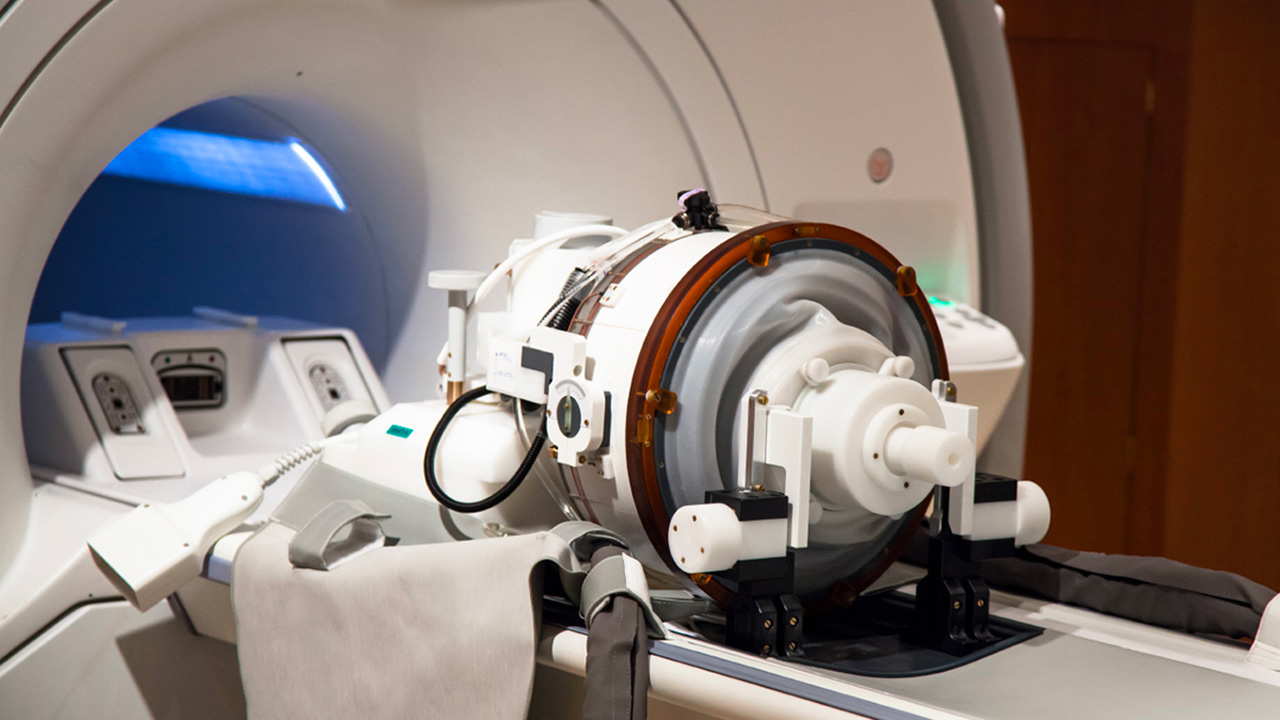Study: New 'echo-focusing' approach for focused ultrasound is feasible, safe, and more efficient
Sunnybrook researchers have demonstrated a new, more efficient way to deliver focused ultrasound to the brain for essential tremor treatment, which may enable more patients to benefit from the cutting-edge therapy.
Results from the first-in-human clinical trial have been published in Movement Disorders.
These new findings build upon nearly a decade of clinical research investigating the use of focused ultrasound to improve symptoms for patients with essential tremor, a debilitating condition that causes uncontrollable shaking in any part of the body, most commonly the hands and arms. Focused ultrasound is a non-invasive, image-guided therapy that uses ultrasound energy to target regions deep within the brain.
The study compared the existing CT-based focusing method, which combines X-ray images of the head and computer models of sound propagation, with a new approach called echo-focusing. Echo-focusing uses microbubbles, tiny harmless gas bubbles, to help determine how to focus the ultrasound beams through the skull and into the brain for treatment. During the procedure, the patient dons a customized ultrasound brain device or helmet. Microbubbles that have been injected intravenously into the patient interact with pulsed sound waves from the helmet, producing signals that ultimately allow clinicians to deliver ultrasound energy more efficiently to the therapeutic target. Once the microbubbles have cleared from circulation, heat from therapeutic ultrasound beams lesion the nerve cells responsible for causing the tremors.
Researchers found that echo-focusing provided improved treatment efficiency in all twelve patients enrolled in the study. Satisfactory lesions were generated in all twelve patients with this new approach, including three patients whose previous focused ultrasound attempts with CT-based focusing had not been successful.
“Our study reaffirms the importance of continued research to improve this innovative therapy,” says Dr. Nir Lipsman, study co-investigator and Director of the Harquail Centre for Neuromodulation at Sunnybrook. “Focused ultrasound has already improved the lives of many patients with essential tremor and these results suggest we may be able to help a greater proportion of patients.”
Sunnybrook researchers first pioneered the use of MRI-guided focused ultrasound to treat patients with essential tremor in 2012, eventually leading to its approval by Health Canada and the U.S. Food and Drug Administration in 2016. Since then, Sunnybrook has treated more than 180 patients with medication-resistant essential tremor using the scalpel-free surgery.
“Despite the significant progress we’ve made demonstrating that focused ultrasound is a safe and effective treatment for essential tremor, we know that current methods for performing these non-invasive brain procedures can be improved upon,” says study lead author Dr. Ryan Jones, Research Associate at Sunnybrook Research Institute. “No two patient skulls are identical and although we have seen success in many people, techniques for more efficient ultrasound delivery will allow us to expand the treatment to even more patients.”
“Although more trials are needed to assess the generalizability of these findings, our research suggests that echo-focusing has the potential to improve the safety and efficacy of focused ultrasound treatments for essential tremor and other neurological disorders,” says Dr. Kullervo Hynynen, study co-investigator, pioneer of focused ultrasound and Vice President of Research and Innovation at Sunnybrook. “As we refine these treatments, we’re hopeful we can continue to improve results for patients worldwide.”
Funding for this study was provided by InSightec, the National Institute of Biomedical Imaging and Bioengineering at the National Institutes of Health (NIH), and the Canadian Institutes of Health Research (CIHR).
For more information about FUS at Sunnybrook Health Sciences Centre, visit sunnybrook.ca/focusedultrasound
Media Contact:
Samantha Sexton
Communications Advisor, Sunnybrook Health Sciences Centre
416-480-4040
samantha.sexton@sunnybrook.ca








